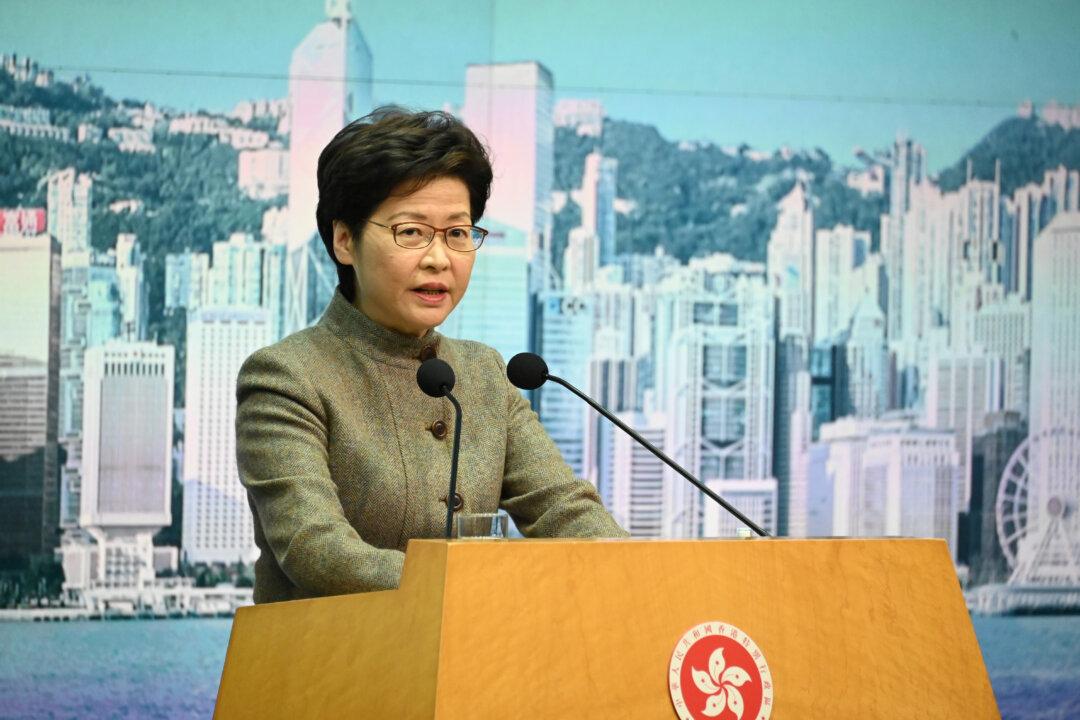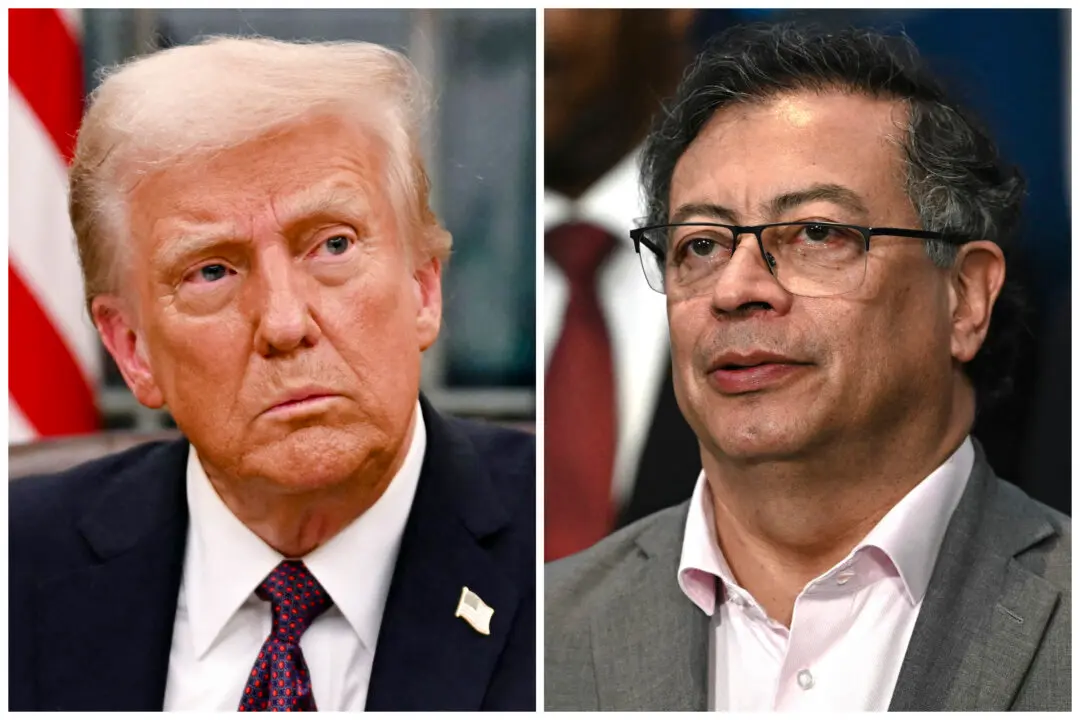Hong Kong Chief Executive Carrie Lam said on April 4 that she won’t seek a second term as the city’s leader.
“I will not run in the sixth chief executive elections,” Lam told reporters during a press briefing. “In other words, I will complete my five-year chief executive term on June 30, and will officially end my 42-year career in government.”





